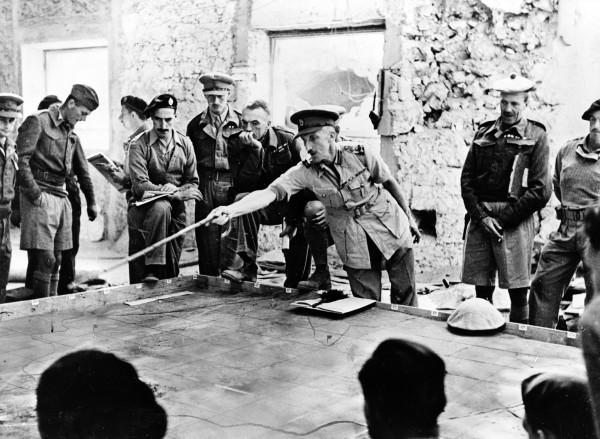
After the failure to capture Tobruk off the march, Comando Supremo and OKW agreed that Tobruk should be captured and supplies accumulated, before the advance into Egypt was resumed. Rommel thought that Tobruk could only be taken by a deliberate attack, which could not begin until support units had arrived in the area and the Luftwaffe had been reinforced, particularly with transport aircraft to carry ammunition, fuel and water. wikipedia. https://en.wikipedia.org/wiki/Siege_of_Tobruk#End_of_the_siege
By: Phil Kohn. Dedicated to the memory of his father, GM3 Walter Kohn, U.S. Navy Armed Guard, USNR, and all men and women who have answered the country’s call in time of need. Phil can be contacted at ww2remembered@yahoo.com.
On March 28, 1941, off Cape Matapan, Greece, there is a long-range engagement between the British cruisers from Piraeus, Greece, and cruisers of Admiral Iachino’s Italian fleet. Suspecting that a large British force may be present, the Italians begin to retreat. In the afternoon, planes from the aircraft carrier HMS Formidable, out of Alexandria, Egypt, find the Italians and attack, damaging the battleship Vittorio Veneto and the cruiser Pola. Veneto is able to continue on at reduced speed, but Pola is dead in the water. In the evening, Adm. Iachino dispatches two cruisers — Zara and Fiume — and four destroyers back to Pola to assist her. Pursuing VENETO, the British fleet spots the three Italian cruisers at night on radar. Approaching unseen in the dark, the British get within close range and begin firing. After a brief gun battle, the three Italian cruisers and two of the destroyers are sunk. In California, Glenn Seaborg’s research group shows that newly discovered plutonium is fissionable and can potentially be used as a weapon.
On March 29, the British fleet gives up chasing the Italian battleship Vittorio Veneto and returns to its respective home bases, ending the Battle of Cape Matapan. Over the entire operation, the sum of British casualties is the loss of two aircraft. In East Africa, Lt. Gen. Cunningham’s South African troops take Diredawa, Ethiopia, in their advance westward toward Addis Ababa. The local Italian populace appeals to the South Africans for protection, alleging that deserters from the native forces have been committing atrocities.
All German, Italian and Danish ships anchored in U.S. waters on March 30 are taken into “protective custody” by the U.S. government. In North Africa, Lt. Gen. Rommel correctly interprets that British forces are weakly dispersed in locations that are not mutually supportable. Accordingly, he orders his forces forward from El Agheila to Mersa Brega, Libya. In Berlin, Hitler addresses a conference of 250 commanders who will have important assignments in the invasion of the Soviet Union. The German leader tells them that the war in the east is to be conducted unlike any previous operation: commissars and communists are to be treated “with the utmost severity.” Expecting the Soviet Union’s defeat within a couple of weeks, Der Führer says: “We have only to kick in the door and the whole rotten structure will come crashing down.”
Rommel’s forces attack the British 2nd Armoured Division on March 31 at Mersa Brega. The British fare the worst in the resulting fierce battle, but are able to stop the German advance.
In Iraq on April 1, a coup led by nationalist politician Rashid Ali al-Gaylani overthrows the regent, Faisal, who escapes to Transjordan. By April 3 a new, anti-British government is installed in Baghdad. In response, the British move troops into Iraq from India and elsewhere in the Middle East to ensure continued access to vital oil supplies. In North Africa, the British pull back from Mersa Brega, abandoning the last defensible position before the open spaces of Libya’s Cyrenaica Plateau. In East Africa: Lt. Gen. Platt’s forces take Asmara, Eritrea.
The Axis advance in North Africa gains momentum on April 2. Abegabia, Libya, is taken. Rommel’s force splits into three columns: two take the main roads to Msus and Mechili, while the third column — Italians and a small German unit under a German commander — are sent along the coast road to Benghazi. In Europe, Hungary’s prime minister, Count Pál Teleki, not wishing to collaborate with the Nazis, commits suicide. The country’s regent, Adm. Miklós Horthy, and Teleki’s replacement, László Bárdossy, continue to work with the Germans.
On April 3, German diplomats depart Belgrade, Yugoslavia, in advance of the coming invasion. In London, the British government severs diplomatic relations with Hungary. Germany activates “Operation Rheinübung”: the battleship Bismarck and other German raiders are to attack British shipping in the Atlantic while avoiding engagement with warships, if possible.







